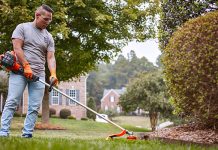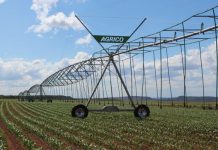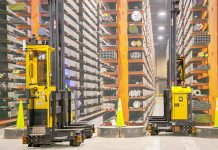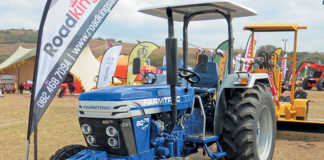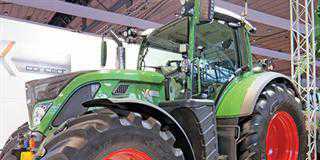An annual in-field assessment is organised by Tony Gardiner, who operates the New Life Training firm in Norfolk. Two-hundred and forty-one in-field checks were made on 33 different models of combine harvesters during the 2006 harvest. Proper training can increase output and reduce grain loss.
In 2006 the average loss for machines driven by untrained operators was a massive 266kg/ha. On an average-sized UK grain farm (240ha), this means a total loss of 63 tons. However, on average, trained operators lost only 55kg/ha. Their average speed rose from 4,4km/h before training to 5,3km/h after training. This 20% increase in productivity makes it less likely that weather conditions will extend the harvest period and makes it possible to get the next crop in earlier. Going 20% faster doesn’t increase fuel consumption by anywhere near 20%, so it means a big saving, too, in litres per hectare.
Modern machines amplify losses
One would think the bigger, more sophisticated machines developed over the past 10 years would cut average grain losses, but the opposite is true in Gardiner’s experience. In the 10 years he’s been training drivers, losses by unskilled combine operators rose by 77% due to incorrectly set machines and slow driving.
The higher output of modern machines only amplifies losses. It can be frightening to measure grain loss at different points on the machine. One combine lost 250kg/ha at the header, 850kg at the drum, 75kg over the sieves and 240kg over the straw walkers – a terrifying total of 1,4 tons/ha.
The combine champion
The award was won by Jason Reeves, who drives a CLAAS Lexion 480 combine at Richard Gantlett’s Yatesbury Organic Farm, at Yatesbury near Calne in Wiltshire. He is the first driver from an organic farm to win the award. Organic farms generally present tougher harvesting conditions than conventional farms, as they tend to have longer straw and more grass weeds.
The crops at Yatesbury Organic Farm were clean, but the straw was long and damp. Gardiner said that, for these conditions, Reeves’s combine settings couldn’t be bettered. He lost just 48kg/ha, at an average speed of 6,5km/h, with a throughput of 28 tons/h. For more information on CLAAS Combines in South Africa contact Johan Joubert at Barloworld Equipment Agriculture on (011) 898 0480, or e-mail [email protected]



